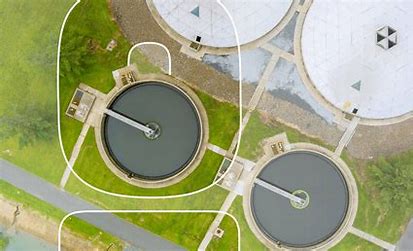
Introduction
Wastewater treatment is a crucial process that ensures the protection of the environment and public health by treating and purifying contaminated water before it is discharged back into natural water bodies. Sustainable practices in wastewater treatment have gained significant attention due to their potential to minimize environmental impact and promote resource recovery. This article aims to provide an in-depth exploration of sustainable practices in wastewater treatment and their relevance in today’s world.
Historical Background
The history of wastewater treatment practices dates back to ancient civilizations, where rudimentary methods were used to remove visible pollutants from water. Over time, with advancements in science and technology, sustainable practices have emerged as a more effective approach to wastewater treatment. These practices consider the long-term impact on the environment, emphasizing the importance of minimizing pollution and maximizing resource recovery.
Key Concepts and Definitions
Sustainable practices in wastewater treatment encompass various key terms and concepts that are essential to understanding the field. Water pollution, caused by the discharge of contaminants into water bodies, is a major concern that sustainable practices aim to address. Water scarcity, another critical issue, underscores the need to utilize water resources efficiently. Green infrastructure refers to the use of natural systems, such as wetlands and forests, to treat wastewater and control stormwater runoff. Resource recovery focuses on extracting valuable resources, such as energy and nutrients, from wastewater. Life cycle assessment evaluates the environmental impact of wastewater treatment processes throughout their entire life cycle.
Main Discussion Points
Point: Sustainable wastewater treatment technologies
Innovative technologies play a vital role in sustainable wastewater treatment. Membrane bioreactors combine the conventional activated sludge process with membrane filtration, resulting in efficient removal of pollutants. Constructed wetlands mimic natural wetland ecosystems and provide effective treatment through biological, physical, and chemical processes. Anaerobic digestion harnesses the power of microorganisms to convert organic matter into biogas. Nutrient removal technologies target the reduction of nitrogen and phosphorus, which are major contributors to water pollution. Each technology offers unique benefits and limitations, and their selection depends on specific treatment objectives and site conditions.
Point: Sustainable practices for wastewater management
Source control and pollution prevention are essential components of sustainable wastewater management. By reducing the introduction of pollutants at the source, such as industrial sites and households, the overall treatment requirements can be minimized. Decentralized wastewater systems, which treat wastewater at or near the point of generation, alleviate the burden on centralized treatment plants and reduce infrastructure costs. Water reuse and recycling enable the efficient utilization of treated wastewater for non-potable applications, such as irrigation and industrial processes. Energy efficiency measures, such as optimizing treatment processes and utilizing renewable energy sources, contribute to sustainable wastewater management by reducing carbon emissions.
Point: Regulatory and policy frameworks for sustainable wastewater treatment
International, national, and local regulations play a crucial role in ensuring the implementation of sustainable wastewater treatment practices. Environmental agencies and organizations work towards developing and enforcing these regulations. Incentives and funding programs encourage industries and municipalities to adopt sustainable practices by providing financial support and technical assistance. These frameworks establish a comprehensive approach to wastewater treatment and drive the transition towards sustainability.
Case Studies or Examples
Case study: Successful implementation of sustainable wastewater treatment practices
One notable case study is the successful implementation of sustainable wastewater treatment practices in [specific location]. This project focused on upgrading the existing treatment plant with advanced technologies and incorporating resource recovery processes. The result was a significant reduction in water pollution and the generation of renewable energy from biogas. The project showcased the environmental and economic benefits that can be achieved through sustainable wastewater treatment.
Case study: Challenges faced during the transition to sustainable wastewater treatment
The transition to sustainable wastewater treatment is not without challenges. In [specific location], the implementation of sustainable practices faced obstacles such as limited funding, technological barriers, and resistance from stakeholders. However, valuable lessons were learned from these challenges, leading to the development of innovative solutions and the identification of opportunities for improvement.
Current Trends or Developments
Advancements in sustainable wastewater treatment technologies continue to emerge. Researchers are exploring new methods for improving treatment efficiency and resource recovery. Additionally, studies have evaluated the effectiveness and efficiency of sustainable practices, providing valuable insights into their long-term effectiveness. The integration of emerging technologies, such as artificial intelligence and automation, has the potential to enhance the operation and optimization of wastewater treatment processes.
Challenges or Controversies
Despite the numerous benefits of sustainable practices in wastewater treatment, there are instances of opposition and skepticism. Some stakeholders question the economic feasibility of implementing sustainable technologies and practices. Balancing economic considerations with the need for environmental sustainability remains a challenge. Public perception and acceptance of wastewater reuse, even after rigorous treatment, can also be a barrier to the widespread adoption of sustainable practices.
Future Outlook
The future of sustainable practices in wastewater treatment holds great potential. Advancements in technology and ongoing research will lead to more efficient and cost-effective solutions. Anticipated impacts of climate change on wastewater treatment systems, such as increased frequency and intensity of storms, call for the development of resilient infrastructure. Collaboration and knowledge-sharing opportunities among nations and organizations will contribute to global sustainable development in the field of wastewater treatment.
Conclusion
In conclusion, sustainable practices in wastewater treatment are crucial for preserving the environment and safeguarding public health. Through innovative technologies, source control measures, and regulatory frameworks, wastewater treatment processes can become more efficient, resourceful, and environmentally friendly. The successful implementation of sustainable practices is evidenced by case studies showcasing notable achievements. As we look to the future, the continued advancement of sustainable wastewater treatment practices will play a critical role in ensuring a sustainable and healthy world.